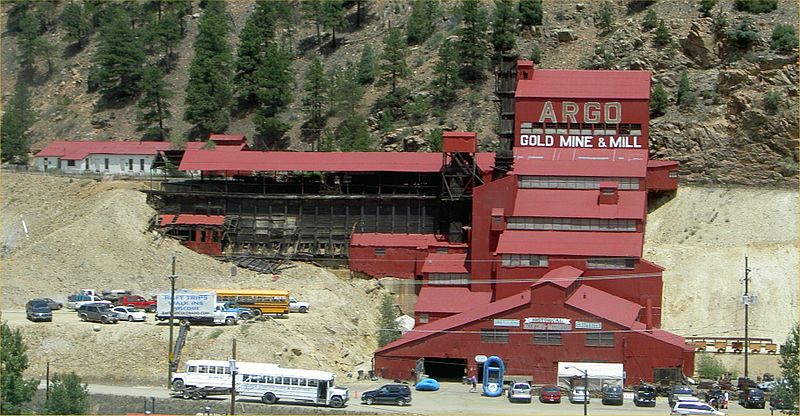 |
| The type of mine where good business practices are used. Photo by Greverod |
For small operations, mining for this precious metal takes a lot of personal sacrifice and faith. Recently,
reality television shows like Discovery Channel’s “Gold Rush” and “Bering Sea Gold” have brought the
business of gold mining to the general public’s attention. Television shows like these do try to show all
sides of the business, but as with all television, the glamorous side seems to come out more than the
gritty side.
At the heart of every good gold mining operation are a few basic yet necessary requirements. These
requirements provide the foundation for a legal and well-planned gold mining business. Before you go
prospecting for gold, you must be sure to take care of the following…
Locate a mining claim: In accordance with the Mining Law of 1872, a mining claim can only
be staked on federally-administered lands that have not been previously claimed or closed to
mineral entry under some special act, regulation or public land order. There are 19 states where
mining claims can be located.
Stake your claim: Federal law requires that claim boundaries be clearly marked. Most states also
have additional staking requirements.
Record the mining claim: In accordance with the Federal Land Policy and Management Act of
1976, all claims and sites must be recorded with both the state and the proper Bureau of Land
Management (BLM) office.
Secure an investor or investors: The total amount of money needed to run a successful mining
operation will depend on the size and location of your claim, the number of employees hired
and the method of mining used. Typically, a company will bring in managers with prospecting
experience to assess the claim and decide on an operating budget. This is the amount proposed
to investors. Investors will require a return on their initial investment, and smart prospectors
will hire an attorney to ensure the mining company receives a fair deal.
Purchase the right equipment: Investing in the right prospecting tools is essential for success.
When you use the right equipment, you find more gold and make more money.
Hire experience: For the most part, you want your employees to have previous experience in the
specific job they will be performing. This reduces the time and money used for training.
Meet all federal and state mining safety and labor law requirements: There are laws and policies
that must be followed in order to continue operation. Each state has its own safety training
policy, so check them out before opening the operation.
Maintain workers’ compensation insurance: Even with proper training, accidents can happen.
Protect your company by maintaining the right workers’ compensation insurance. In some
states, it is actually a law to maintain workers’ compensation insurance, so check your state’s
requirements before hiring.
Maintain the mining claim: Under the federal mining law, all claims must follow the annual
mining claim maintenance requirements and pay an annual maintenance fee.
In addition to these practices, all gold mining operations should hire an accountant and office manager
to maintain all financial, employee and other records. A good operation keeps great records and a close
eye on profits and losses.
For more information on federal mining laws, visit the U.S. Department of the Interior Bureau of Land
Management website and search “gold mining.”
About the Author: Allison Lane owns the website www.mpaprograms.org and enjoys writing guest blog posts on various topics of interest.

Bullion Exchanges is a well known Precious Metals Seller established in New York City's Diamond District.
ReplyDeleteThey have a wide inventory of products including but not limited to, precious metals that range from the gold & silver to the prestigious platinum and palladium.
They are offering a massive range of products appealing to 1st time shoppers and for established investors.